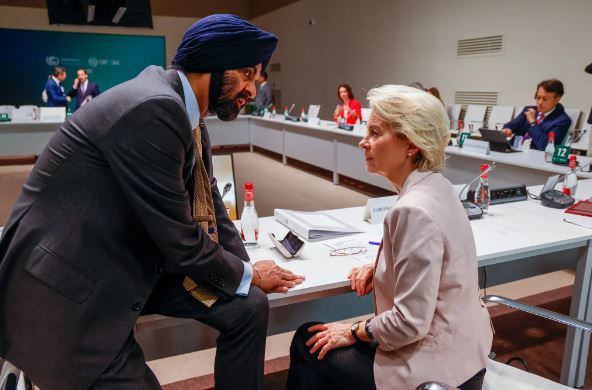In response to longstanding calls for a more robust commitment to climate change initiatives, the World Bank, under the leadership of its new president, Ajay Banga, is undergoing significant changes to address the global climate crisis. Following the Bridgetown Initiative led by Mia Mottley, the prime minister of Barbados, and joined by others, including Emmanuel Macron, president of France, the World Bank is enhancing its efforts to combat climate change, reduce vulnerability, and support developing countries struggling with climate-related challenges.
Ajay Banga, who took over as president in June, has implemented several changes to steer the World Bank toward a more climate-focused agenda. The move comes as the planet experiences more extreme weather events, with poor countries facing the dual challenge of recovering from climate disasters and preparing for future calamities. Acknowledging the urgent need for action, Banga has undertaken reforms to align the World Bank with climate initiatives.
One of the initial changes involved the suspension of debt and interest payments for countries affected by natural disasters, such as hurricanes and wildfires exacerbated by global warming. Additionally, Banga has increased the allocation of funds for climate-related projects, with 45 percent of the bank’s lending now dedicated to initiatives addressing climate change, including the construction of new renewable energy projects.
Under Banga’s leadership, the World Bank is actively exploring ways to reduce methane emissions, establish accountable marketplaces for carbon credits in developing countries, and serve as the home for a new “loss and damage” fund. This fund aims to provide financial assistance to poor countries that have suffered irreversible losses due to climate disasters. Banga has emphasized the importance of streamlining the organization, promoting collaboration, and instigating a cultural shift to expedite decision-making.
While the World Bank has not undergone a complete overhaul, the changes made by Banga are seen as positive steps in the direction of climate action. The bank’s focus on addressing vulnerability, reducing emissions, and supporting global initiatives demonstrates a commitment to tackling the climate crisis. Observers, including climate experts and former World Bank staff, have generally supported Banga’s efforts, noting a significant shift in the institution’s atmosphere and purpose.
Despite the positive reception, challenges remain on the horizon. High-interest rates continue to pose obstacles to affordable lending, especially for developing nations. Ongoing tensions over China’s role as both a major shareholder and borrower present complexities. The need for bureaucratic reform within the institution, with its extensive global reach, adds another layer of complexity to the transformation process.
The World Bank’s shift toward climate action reflects a broader recognition of the urgency and scale of the climate crisis. As poor nations grapple with the financial burden of recovery and the imperative to transition away from fossil fuels, the World Bank’s role becomes increasingly crucial. The effectiveness of Banga’s reforms will also depend on the commitment of major shareholders, including the United States, China, Germany, France, and Japan, to contribute more capital and accept greater risk.
Fossil fuel lending by the World Bank has decreased, but it persists as many developing countries seek economic growth through new oil and gas projects. Banga acknowledges the challenges ahead, indicating that a change in the institution’s business model is essential to deliver on the monumental task of addressing the climate crisis. While significant strides have been made, the World Bank’s ability to drive meaningful change will hinge on the continued support and commitment of its major shareholders.
The World Bank, under the leadership of Ajay Banga, is undergoing a notable transformation with a heightened focus on climate change initiatives. The reforms aim to address vulnerability, reduce emissions, and support developing countries grappling with the impacts of climate disasters. Despite positive feedback, challenges such as high-interest rates, geopolitical tensions, and bureaucratic hurdles persist, emphasizing the need for sustained commitment to climate action on a global scale.

